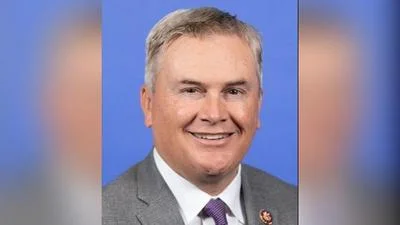Congressman David Price (D-NC), Chair of the Transportation, and Housing and Urban Development, and Related Agencies Appropriations Subcomittee, delivered the following remarks at the Subcommittee's hearing on "The Department of Housing and Urban Development’s Management of Housing Contracts During the Shutdown":
Welcome, everyone, to the first THUD Subcommittee hearing of 2019.
Today, we will be conducting oversight of HUD’s management during the recent government shutdown, with a focus on nearly 1,200 expired housing contracts that put tens of thousands of tenants at risk.
I’m pleased to have Brian Montgomery, the Acting Deputy Secretary of HUD, and Irv Dennis, the Department’s Chief Financial Officer, here to testify this morning. Thank you for being here, and I look forward to your testimony.
Before I make a brief opening statement, I want to say how pleased I am that Mr. Diaz-Balart and I will continue to be partners on the subcommittee. I look forward to working with you and your Republican colleagues to write an FY20 THUD bill that will garner strong bipartisan support.
I also want to introduce our new subcommittee members on the Democratic side of the dais:
Rep. Bonnie Watson Coleman of New Jersey
Rep. Brenda Lawrence of Michigan
Rep. Norma Torres of California
They each bring valuable perspectives to the subcommittee, and I’m excited to have them join myself and our returning members on “Team T-HUD."
Now, let’s return to the business before us this morning. The recent presidentially-induced government shutdown, which lasted 35 days, was one of the worst blunders in American political history.
It was self-inflicted, damaging, and counterproductive. I don’t believe anybody in this room wanted it. Unfortunately, the President did - and it took more than a month before he allowed even a temporary solution to be put in place.
Unfortunately, HUD was a major casualty of the President’s recklessness.
Shutdowns hinder or halt essential government functions, and agencies like HUD are left with a skeleton staff to cope with the fallout.
Every indication is that this time, the damage was especially severe. Serious questions have emerged about the Department’s management of the lapse in appropriations-including the degree to which the shutdown was anticipated and whether adequate preparations were made in the preceding weeks.
Many housing contracts were allowed to expire - putting tens of thousands of tenants at risk in the Project Based Rental Assistance (PBRA) program and 202/811 housing for the elderly and disabled.
Approximately 650 of these contracts expired in December, many of them before the lapse in appropriations occurred. The shutdown then greatly complicated the task of curtailing the damage. This is completely unacceptable. The Department should have seen this coming, but senior leadership failed to take necessary action.
HUD’s options were further limited by the fact that the department had imprudently spent approximately $400 million in advance appropriations at the beginning of the fiscal year.
This money is flexible and designed to accommodate housing contracts since they operate on a calendar year basis rather than the federal fiscal year. HUD could have used the advance appropriation during the shutdown to renew expiring contracts, but the money was already spent.
Compounding the problem was the Department’s haphazard communication with stakeholders-including tenants, housing providers, and Congress.
HUD expected landlords and non-profit groups to tap into their funding reserves to keep contracts afloat, but the Department failed to issue timely instructions. We heard numerous reports from landlords who had not received guidance.
Meanwhile, this subcommittee got wind of the difficulties and requested basic information from the Department about the number of expiring contracts and affected properties.
HUD had already shared this information with outside stakeholders but refused to provide Congress with the same information for nearly a week despite frequent inquiries.
This is inexcusable. The Appropriations Committee expects HUD to comply with legitimate oversight requests, and I hope we will receive assurances from our witnesses that this kind of episode won’t happen again.
We need a better understanding of what went wrong and why. Just as important, we need to know what HUD is doing to ensure similar problems don’t occur again in the future.
This subcommittee is prepared to be a partner with HUD. If there are certain adjustments in the way the department’s funding works that would be helpful, we want to know about them. But we also need HUD to provide an honest assessment of what happened and how it will improve.
Again, I look forward to hearing from our witnesses this afternoon. I’d now like to recognize the Ranking Member, Mr. Diaz-Balart, for his opening statement.
Source: U.S. Department of HCA








